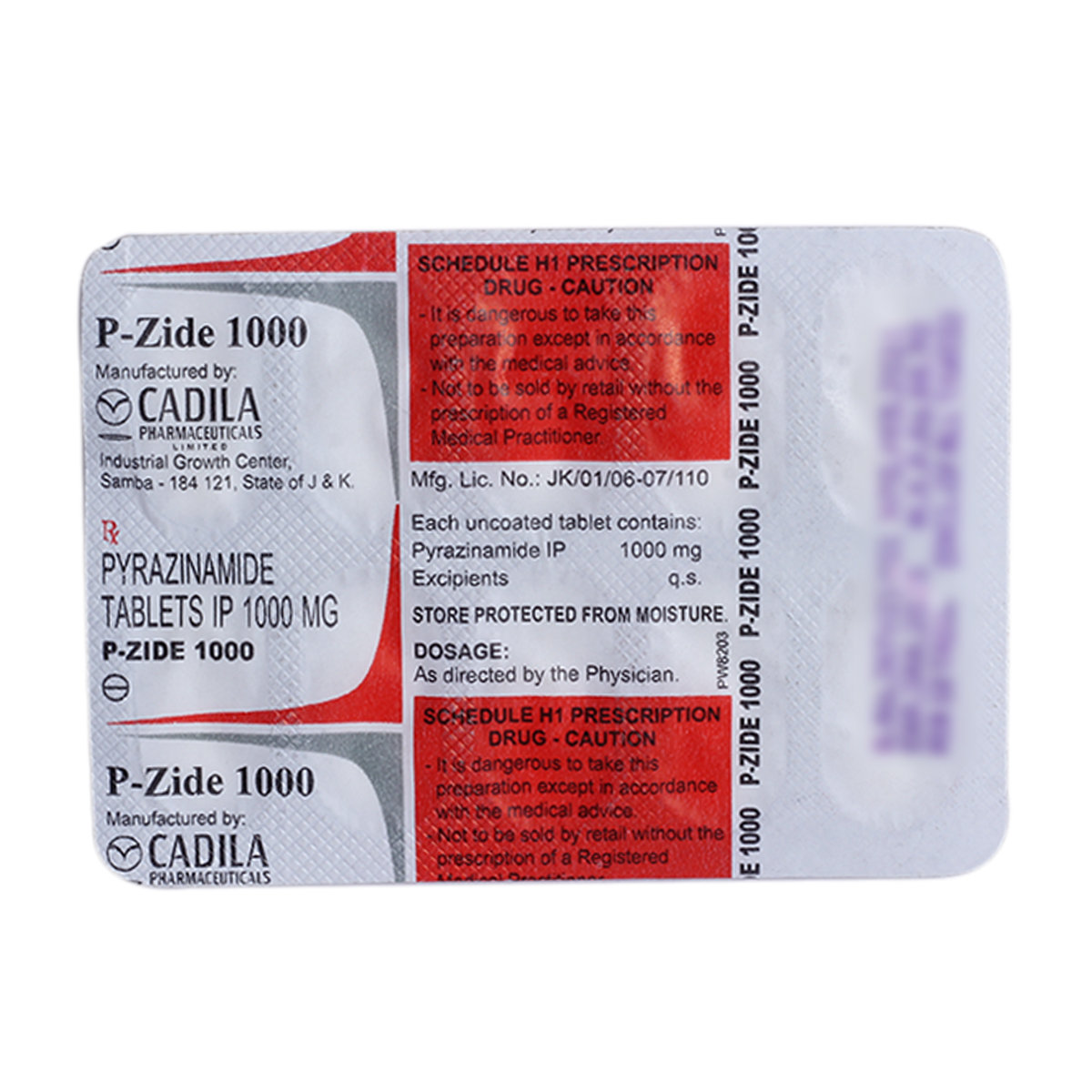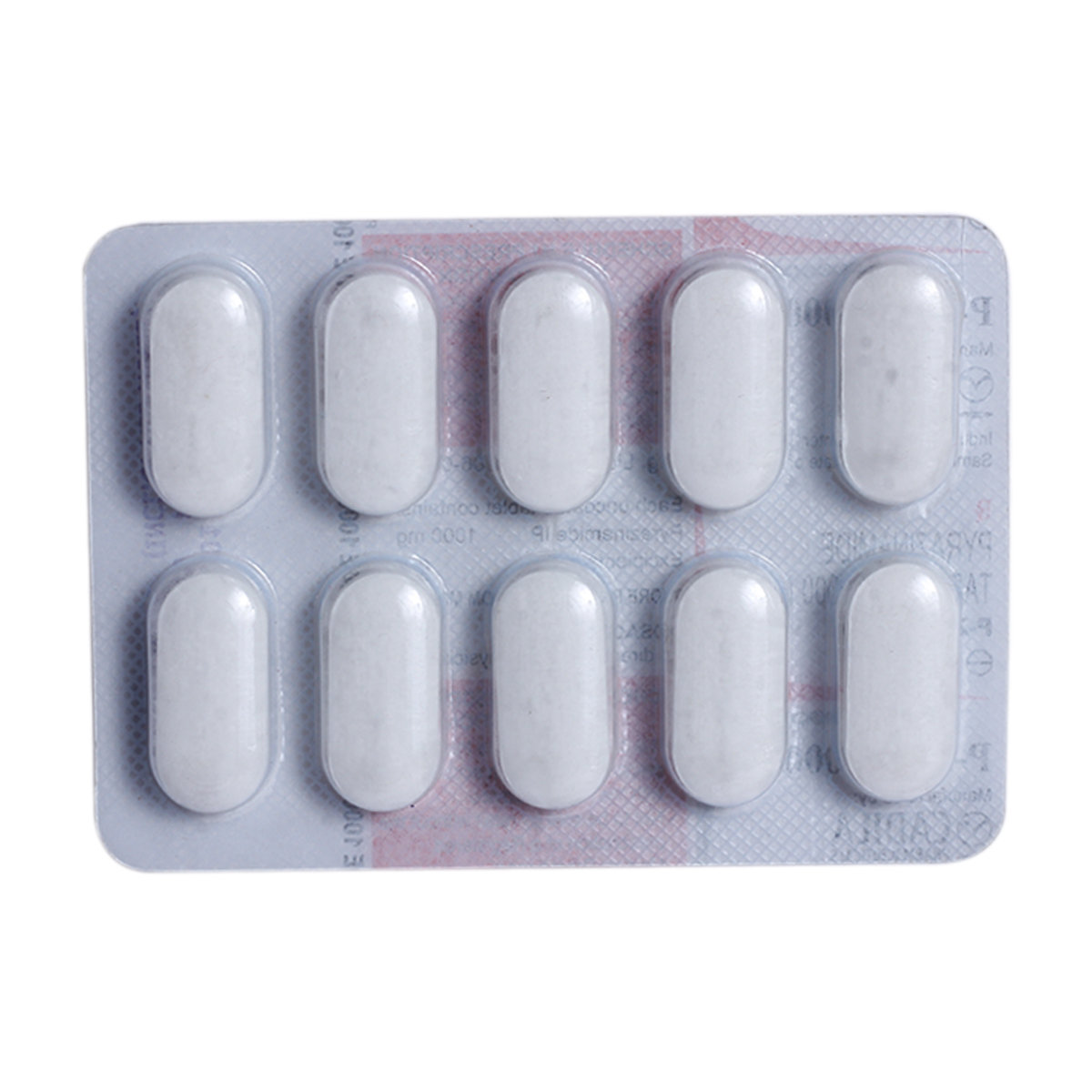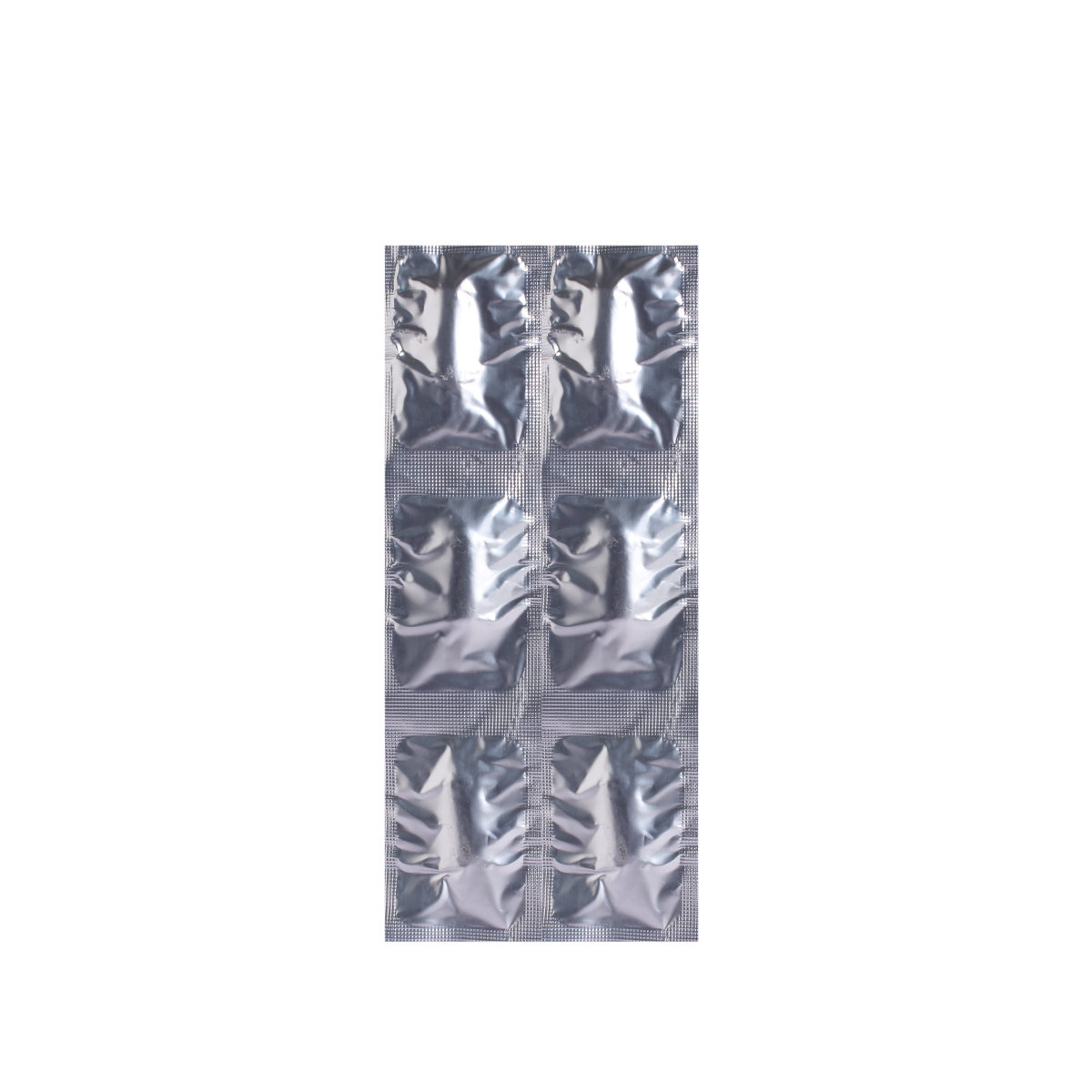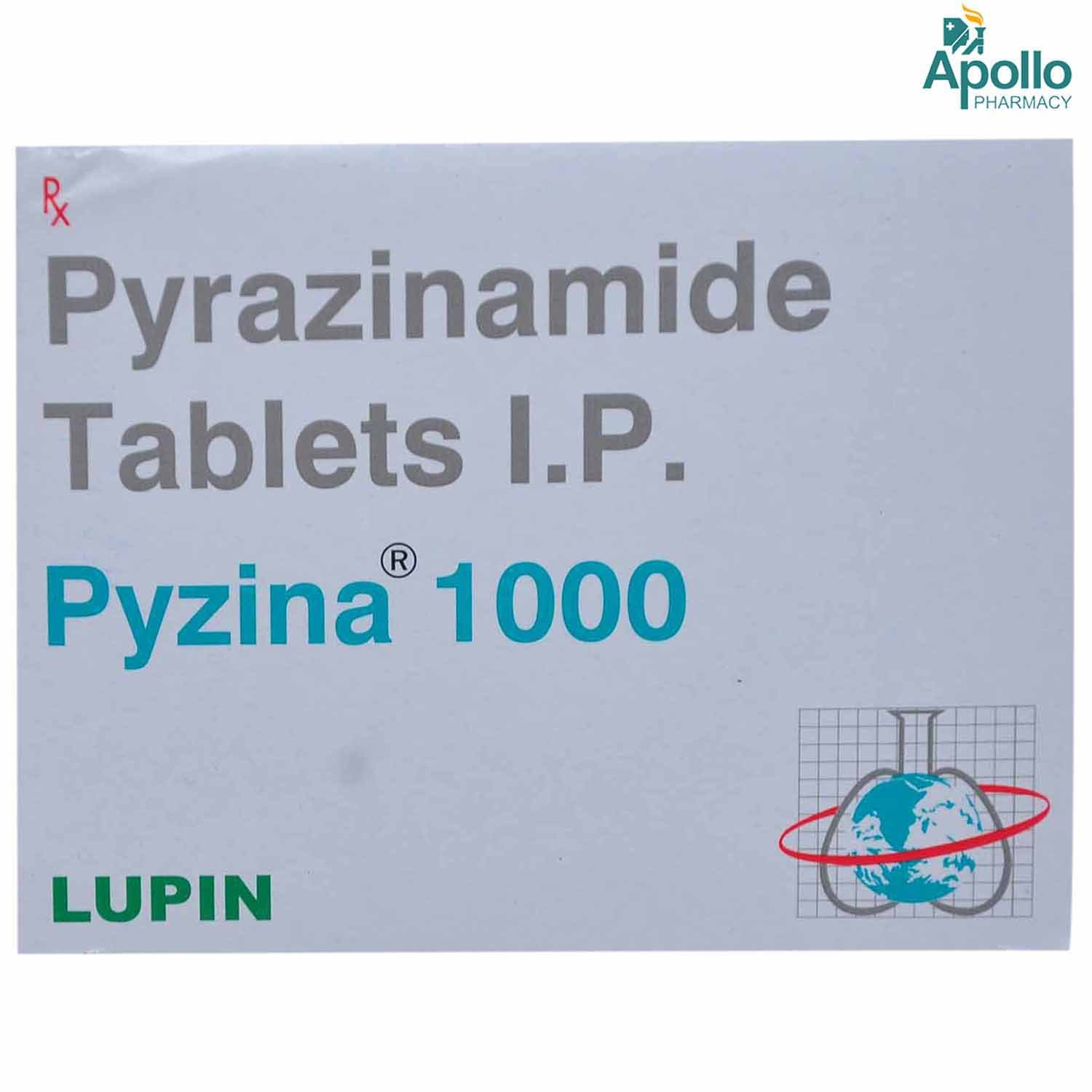P-Zide 1000 Tablet 10's
MRP ₹110
(Inclusive of all Taxes)
₹16.5 Cashback (15%)
Provide Delivery Location
Online payment accepted
 Prescription drug
Prescription drugWhats That
Composition :
Manufacturer/Marketer :
Consume Type :
Expires on or after :
Return Policy :
NPPA :
About P-Zide 1000 Tablet
P-Zide 1000 Tablet belongs to the group of medicines called 'anti-tuberculosis' drugs primarily used to treat and prevent tuberculosis. Tuberculosis is an infectious disease that mainly affects the lungs, but it can also spread to other body parts such as kidneys, brain, spine and bone marrow. P-Zide 1000 Tablet does not work against infections caused by the virus, such as the common cold and flu.
P-Zide 1000 Tablet contains 'Pyrazinamide'. Pyrazinamide is a chemically synthesised bacteriocidal antibiotic. It converts a special enzyme to an active form that inhibits the synthesis of fatty acids; this disrupts the cell membrane and disables energy production necessary for the survival of the TB bacteria.
Your doctor will decide the dose and duration based on the severity of your disease. Common side effects of P-Zide 1000 Tablet include muscle/joint pain, nausea, vomiting and loss of appetite. These side effects are not familiar to everyone and vary individually. If you notice any side effects that are not manageable, please consult your doctor.
Let your doctor know if you use any prescription and non-prescription medications you are taking, including other vitamins, before starting P-Zide 1000 Tablet . Please tell your doctor if you are allergic to P-Zide 1000 Tablet or its components. Inform your doctor beforehand if you have a history of liver or kidney diseases, diabetes, gout, high uric acid level in the blood, alcohol use and are undergoing dialysis. It is essential to let your doctor know if you are pregnant, planning to conceive or are a breastfeeding mother. Avoid consuming alcohol along with P-Zide 1000 Tablet as it might lead to liver problems.
Uses of P-Zide 1000 Tablet
Directions for Use
Key Benefits
P-Zide 1000 Tablet contains 'Pyrazinamide', which is used to treat and prevent tuberculosis. Pyrazinamide is a chemically synthesised bacteriocidal antibiotic. It converts a special enzyme to an active form that inhibits the synthesis of fatty acids; this disrupts the cell membrane and disables energy production necessary to survive the TB bacteria. It is usually given in alone or combined with other antitubercular agents to treat tuberculosis.
Storage
- Preventing Vomiting (Before it Happens)
- Take medication exactly as prescribed by your doctor. This can help minimize side effects, including vomiting.
- Having a small meal before taking your medication can help reduce nausea and vomiting.
- Talk to your doctor about taking anti-nausea medication along with your prescribed medication.
- Managing Vomiting (If it Happens)
- Try taking ginger in the form of tea, ale, or candy to help alleviate nausea and vomiting.
- What to Do if Vomiting Persists
- Consult your doctor if vomiting continues or worsens, consult the doctor for guidance on adjusting your medication or additional treatment.
- Report to Your Doctor: Inform your doctor about the muscle pain, as they may need to adjust your medication.
- Stretch Regularly: Gentle stretching can help relieve muscle pain and stiffness.
- Stay Hydrated: Adequate water intake supports muscle health by removing harmful substances and maintaining proper muscle function.
- Warm or Cold Compresses: Apply cold or warm compresses to the affected area to reduce pain and inflammation.
- Rest and Relaxation: Adequate rest helps alleviate muscle strain, while relaxation techniques like deep breathing and meditation can soothe muscle tightness, calm the mind, and promote relief from discomfort.
- Gentle Exercise: Participate in low-impact activities, such as yoga or short walks, to improve flexibility, reduce muscle tension, and alleviate discomfort.
- Consult a physician: If your symptoms don't improve or get worse, go to the doctor for help and guidance.
- If you experience persistent or severe malaise (a general feeling of discomfort, illness, or unease) after taking medication, seek medical attention immediately.
- Inform your doctor about the medication you're taking and the symptoms you're experiencing.
- Your treatment plan may be modified, which may include adjusting the dosage, substituting with an alternative medication, or discontinuing the medication. Additionally, certain lifestyle changes may be recommended to help manage symptoms.
- To manage malaise symptoms, follow your doctor's advice, such as getting plenty of rest, staying hydrated, and practicing stress-reducing techniques.
- Track your symptoms regularly and report any changes or concerns to your healthcare provider to ensure the malaise is managed effectively.
- Painful urination can be reduced by drinking lots of water.
- Don't hold urine, as it can worsen the pain during urination.
- Try taking probiotics and eating garlic, which can help reduce painful urination.
- Sleep well and give enough rest to your body.
- Take a balanced diet and avoid bladder-irritating foods.
- Quit smoking and intake of alcohol.
- Practice yoga and meditation to improve inner strength and stay healthy.
Drug Warnings
Brief your medical history to the doctor if you have any liver or kidney diseases, diabetes, gout, high uric acid level in the blood, lactose intolerance, alcohol use and are undergoing dialysis treatment before starting P-Zide 1000 Tablet . Let your doctor know if you are undergoing any vaccinations with live bacterial vaccines (like typhoid vaccine) since P-Zide 1000 Tablet may affect vaccine's activity. Please consult your doctor know if you are pregnant, planning to conceive or are a breastfeeding mother before starting P-Zide 1000 Tablet . Avoid consuming alcohol along with P-Zide 1000 Tablet as it might lead to liver problems. Store P-Zide 1000 Tablet below 25°C away from direct sunlight.
Drug-Drug Interactions
Drug-Drug Interactions
Login/Sign Up
Co-administration of Lomitapide with P-Zide 1000 Tablet may increase in the risk or severity of liver problems.
How to manage the interaction:
Although taking Lomitapide and P-Zide 1000 Tablet together can evidently cause an interaction, it can be taken if a doctor has suggested it. If you have any of these symptoms, it's important to contact your doctor immediately: fever, chills, joint pain, swelling, bruising, skin rash, itching, loss of appetite, fatigue, nausea, vomiting, abdominal pain, dark-colored urine, or bleeding. Do not stop using any medications without a doctor's advice. Do not discontinue the medication without consulting a doctor.
Co-administration of Ketoconazole with P-Zide 1000 Tablet may increase the risk or severity of liver damage.
How to manage the interaction:
Although taking Ketoconazole and P-Zide 1000 Tablet together can result in an interaction, it can be taken if a doctor has prescribed it. However, if you have any of the following symptoms: fever, chills, joint pain or swelling, unusual bleeding or bruising, skin rash, itching, fatigue, lack of appetite, nausea, vomiting, abdominal pain, dark urine, light stools, and/or yellowing of the skin or eyes, consult a doctor immediately. Do not discontinue the medication without consulting a doctor.
Co-administration of Teriflunomide with P-Zide 1000 Tablet may increase the risk or severity of liver damage.
How to manage the interaction:
Although taking Teriflunomide and P-Zide 1000 Tablet together can evidently cause an interaction, it can be taken if a doctor has suggested it. If you have any of these symptoms, it's important to contact your doctor immediately: fever, chills, joint pain, swelling, bruising, skin rash, itching, loss of appetite, fatigue, nausea, vomiting, abdominal pain, dark-colored urine, or bleeding. Do not stop using any medications without a doctor's advice. Do not discontinue the medication without consulting a doctor.
Taking rifampicin together with P-Zide 1000 Tablet can cause liver problems.
How to manage the interaction:
Although there is an interaction between P-Zide 1000 Tablet and rifampicin, they can be taken together if prescribed by a doctor. However, if you experience fever, rash, less desire to eat, nausea, vomiting, fatigue, right upper abdominal pain, or dark urine, contact your doctor immediately. Do not discontinue any medications without consulting a doctor.
Co-administration of leflunomide with P-Zide 1000 Tablet may increase the risk or severity of liver problems.
How to manage the interaction:
Although taking Leflunomide and P-Zide 1000 Tablet together can cause an interaction, they can be taken together if prescribed by a doctor. However, if you experience fever, chills, joint pain or swelling, unusual bleeding or bruising, skin rash, itching, less desire to eat, fatigue, nausea, vomiting, abdominal pain, or yellowing of the skin or eyes, contact a doctor immediately. Do not discontinue any medications without consulting a doctor.
Drug-Food Interactions
Drug-Food Interactions
Login/Sign Up
Diet & Lifestyle Advise
- Pineapple juice might help soothe the symptoms of cough and cold. It also has anti-inflammatory and mucolytic properties.
- Foods rich in vitamin C, such as kiwi, broccoli and bell pepper, help improve the immune system.
- Avoid processed and fried foods.
- Warm ginger tea or warm soup can help in providing relief from the cough.
- Avoid foods and drinks, such as cured meat, matured cheese, soya, tuna, salmon, mackerel, wine and beer.
- Quit smoking and avoid alcohol consumption.
Side Effects of P-Zide 1000 Tablet
- Muscle/joint pain
- Nausea
- Vomiting
- Loss of appetite
- Hepatitis, liver dysfunction
Habit Forming
Therapeutic Class
All Substitutes & Brand Comparisons
RX
Out of StockNot for online salePirazide-1000mg Tablet 10's
SSM Pharmaceuticals Ltd
₹92.9
(₹8.36 per unit)
24% CHEAPERRX
Not for online saleMacrozide-1000 Tablet 6's
Macleods Pharmaceuticals Ltd
₹66
(₹9.9 per unit)
9% CHEAPERRX
Not for online salePyzina 1000 Tablet 10's
Lupin Ltd
₹112
(₹10.08 per unit)
8% CHEAPER
Author Details
We provide you with authentic, trustworthy and relevant information
Drug-Diseases Interactions
Drug-Diseases Interactions
Login/Sign Up
FAQs
Drug-Drug Interactions Checker List
- PROBENECID
- SULFINPYRAZONE
Special Advise
- Let your doctor know that you are taking P-Zide 1000 Tablet if you are undergoing any medical tests.
- Your doctor may advise liver enzymes and uric acid levels tests before you start treatment to make sure you can safely take P-Zide 1000 Tablet .
- It is advised to undergo liver functioning tests to keep a check on your liver function.
- Use a reliable contraceptive method (such as condoms or a diaphragm) to prevent pregnancy while you are taking P-Zide 1000 Tablet as it may make hormonal contraceptives such as the pill less effective.
Disease/Condition Glossary
Tuberculosis (TB): Tuberculosis is an infectious disease that affects the lungs, but it could also spread to other body parts such as kidneys, brain, spine and bone marrow. Tuberculosis is caused by a bacteria named Mycobacterium tuberculosis. It is a contagious disease which can spread to others through small droplets released into the air by a person suffering from tuberculosis. Symptoms include a cough that lasts for a few weeks, pain while coughing or normal breathing, unexplained fatigue, fever, night sweats, and loss of appetite and weight. People who smoke or consume alcohol, and people diagnosed with HIV and immune system problems are more likely at risk of developing active TB.

Have a query?
Alcohol
Safe if prescribed
You are recommended to avoid alcohol consumption while taking P-Zide 1000 Tablet . Alcohol intake, along with P-Zide 1000 Tablet , may cause increased liver damage. Please consult your doctor for more information.
Pregnancy
Consult your doctor
P-Zide 1000 Tablet should be used with caution during pregnancy. Please consult your doctor before taking P-Zide 1000 Tablet if you are pregnant or planning to conceive.
Breast Feeding
Consult your doctor
P-Zide 1000 Tablet is not recommended for use during breastfeeding since it is excreted into the breast milk and may harm a nursing baby. Please consult your doctor if you are a breastfeeding mother.
Driving
Safe if prescribed
It is not known if P-Zide 1000 Tablet alters the ability to drive. Do not drive if you experience any symptoms that affect your ability to drive or operate machinery.
Liver
Consult your doctor
P-Zide 1000 Tablet is not recommended in patients with severe liver damage. Please consult your doctor since P-Zide 1000 Tablet should be used with caution in patients with liver impairment/liver disease. Regular monitoring of the liver with liver function tests is also advised.
Kidney
Consult your doctor
Please consult your doctor since P-Zide 1000 Tablet should be used with caution in patients with kidney impairment/kidney disease. Your doctor may adjust the dosage in case of renal dysfunction.
Children
Safe if prescribed
P-Zide 1000 Tablet is recommended in children below 12 years of age only after doctor's advice.












